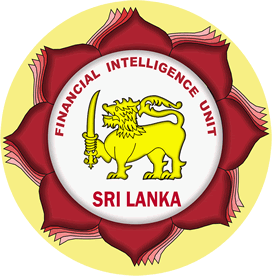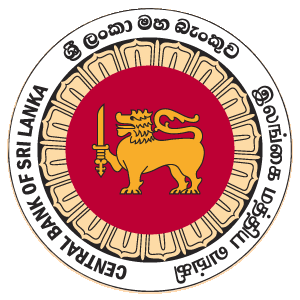In terms of subsection (g) of Designated Non-Finance Business in Section 33 of Financial Transactions Reporting Act No. 06 of 2006 (FTRA), casinos when their customers are engaged in financial transactions equal to or above the prescribed threshold by the Financial Intelligence Unit of Sri Lanka (FIU-SL) are required to comply with Anti Money Laundering and Countering the Financing of Terrorism (AML/CFT) measures. The Rule No. 9(2)(a) of the Designated Non-Finance Business (Customer Due Diligence) Rules, No. 1 of 2018 (CDD Rules for DNFBPs) prescribed the threshold as equivalent to or above United States Dollars 3,000 in Sri Lankan Rupees or in any foreign currency.
What are the Legal Obligations for Casinos under AML/CFT?
-
Appointing a Compliance Officer (CO):
According to the Rule No. 41 of the CDD Rules for DNFBPs, casinos are required to appoint a senior management level officer as the CO to deal with AML/CFT related matters in your entity. The appointment of CO is required to be informed to the Director, FIU using 'CO Declaration Form’.
The duly filled CO Declaration Form should be submitted to the FIU;
| Address | The Director, Financial Intelligence Unit Central Bank of Sri Lanka No. 30, Janadhipathi Mawatha Colombo 01 |
| fiudnfbp@cbsl.lk |
-
Assessing the Money Laundering and Terrorist Financing (ML/TF) Risk of the Casinos:
As per the Rule No. 6(a) of the CDD Rules for DNFBPs casinos have to conduct an assessment on ML/TF risk of the entity based on the professional judgment, knowledge and expertise of the business management. Further, risk assessment of the entity should be done based on the types of customers, types of products, types of payment methods that the casinos are having and the geographical location.
Technical assistance to conduct ML/TF Risk Assessment of your entity could be obtained from FIU-SL. Please contact FIU-SL on 011 2398725.
-
Having AML/CFT Policy and Procedures for Casinos:
Rule No. 6(g) of the CDD Rules for DNFBPs indicates the requirement to develop an AML/CFT Policy for the entity. Once ML/TF risk of the entity is assessed, it is required to establish a policy which includes procedures and controls to prevent, detect and manage the possible ML/TF risks.
Technical assistance to prepare the AML/CFT Policy for your entity could be obtained from FIU-SL. Please contact FIU-SL on 011 2398725.
-
Conducting Customer Due Diligence (CDD):
In terms of Part II of the CDD Rules for DNFBPs, casinos when a customer/beneficial owner engages in financial transactions in Sri Lankan Rupees or in any foreign currency equivalent to or above USD 3,000, are required to conduct CDD measures.
The following minimum information should be collected to conduct CDD on a customer/beneficial owner;
- the full name;
- permanent residential or mailing address;
- occupation, name of employer, business or principal activity;
- an official personal identification number or any other identification document that bears a photograph of the customer or beneficial owner such as the national identity card, passport or driving license;
- date of birth;
- nationality;
- source of funds;
- purpose of transaction;
- telephone numbers (residence, office or mobile).
Once collected the above information, the identity of the customer should be verified. The casinos are required to verify the identity of the customer using reliable, independent source documents, data or information (10(a) of the CDD Rules for DNFBPs).
Further, information obtained on point (d) of the above should be verified by obtaining the relevant original document and a copy of the document should be taken.
-
Customer Risk Profiling
According to the Rule No. 6(c) of the CDD Rules for DNFBPs, casinos are required to profile customers according to the risk level based on the collected information. In this customer risk profiling customer’s geographical location, products and services, transactions or delivery channel of a particular individual/corporate customer should be considered.
Technical assistance on customer risk profiling could be obtained from FIU-SL. Please contact FIU-SL on 011 2398725.
-
Conducting Enhance Customer Due Diligence
According to Rule No. 16 of the CDD Rules for DNFBPs casinos are required to conduct Enhance Customer Due Diligence (ECDD) for high risk customers or high risk business relationships or transactions involved.
Eg: If a customer identified as a Politically Exposed Person (PEP) or having non-face-to-face business relationship with the customer or customer is profiled as a high risk customer then it is required to conduct ECDD for such customers.
Casinos should take following measures when conducting ECDD;
- obtain additional information of the customer.
- obtain approval from the senior management before establishing a business relationship with such customers (In the case of an existing customer, for continuing such business relationship with the customer).
- obtain additional information on the intended nature of the business relationship.
- regularly update the identification data of the customer/beneficial owner.
- enquire and record the reasons for prospective or performed transaction.
-
Screening against the United Nations Security Council Resolutions (UNSCR) lists:
Casinos are required to cross check customers’ or beneficial owners’ details against persons and entities designated by the UNSCR which have been issued in compliance with the United Nations Act, No. 45 of 1968, with respect to any designated list on targeted financial sanctions related to terrorism and terrorist financing and proliferation of weapons of mass destruction and its financing.
Click here for updated lists.
Technical Assistance on screening customers against the UNSCR lists could be obtained from FIU-SL. Please contact FIU-SL on 011 2398725.
-
Reporting Suspicious Transactions (STRs)
As per the Section 7 of the FTRA, casinos are required to report any transaction(s) or attempted transaction(s) which has reasonable grounds to suspect that it may be related to the commission of any unlawful activity or any other criminal offence.
- STR should report to FIU-SL as soon as practicable, after forming a suspicion or receiving the information, but no later than two working days of forming a suspicion.
- STR could be submitted by way of mail, telephone which should be followed up in writing within twenty-four hours, fax or e-mail.
- STR should be contained a statement of the grounds on which the casino holds the suspicion and signed or authenticated by the casino.
- STRs should be submitted using Schedule V of the Suspicious Transactions (Format) Regulations of 2017 to report STRs. .
Whenever, forming a suspicion of ML/TF, and it reasonably believes that conducting the CDD measures would tip off the customer, it may proceed without conducting the CDD measures, but shall immediately file an STR.
-
Other AML/CFT Measures
- Training and Awareness Programmes: Casinos are required to provide training sessions regularly on AML/CFT compliance policies and procedures to the board of directors, senior management, employees, agents or any other individuals authorized to act on behalf of the entity. The compliance officer once appointed, is responsible on conducting regular AML/CFT trainings to other staff and employees.
- Employee Screening: Procedures should be adopted to screen employees before recruiting/hiring to make sure they are not connected to any activities relating to ML/TF.
- Independent Auditing: An independent audit should be carried out to ensure the AML/CFT functions within the entity.
-
Raise the Red Flag
A set of possible suspicious indicators are as follows;
- Customers purchasing and redeeming chips or depositing and withdrawing funds with no gambling or minimal gambling.
- Customers requesting multiple payments of winnings and capital to the account of a third party.
- Multiple players requesting for payments to the same beneficiary.
- Gamblers who appear to be cooperating by placing offsetting bets against each other.
- Structuring the purchase or redemption of chips or other instruments to avoid trigging CDD requirements or other reporting requirements (whether real or perceived).
- “Bill stuffing” by feeding currency to gambling devices that accept cash and then cashing out (e.g. by receiving a TITO ticket or other such instrument) with minimal or no actual gambling.
- Customers befriending/attempting to befriend casino employees.
- Dramatic or rapid increase in size and frequency of transactions for an established customer.
- Gambling activity that is inconsistent with the financial situation and/or known occupation of the person gambling.
- Purchase of winning tickets from punters (gamblers).
- Purchasing of winning jackpots or winning lottery tickets at a premium.
- Exchanging large amount of small denomination bank notes for larger denominations without gambling.
- Frequent claims for winning jackpots.
- Customers watching/hanging around jackpots sites but not participate in gambling.
- Customers passing significant values in chips or TITO tickets to other customers.
- Loaning funds for gambling to customers with repayment of the funds being a discounted amount.
- Gambling patterns that appear designed to wager large sums at low risk over a period of time, thus achieving a predictable low rate of loss prior to cashing out.
- Customers reluctant to provide information to complete CDD requirements, or that provide doubtful or unverifiable identification information, or who in any other way appear to deliberately impede the company’s CDD process.
-
What Should You Know?
Legislations relating to Casinos
- Financial Transactions Reporting Act, No. 6 of 2006
- Suspicious Transactions (Format) Regulations of 2017
- Rules for Designated Non-Finance Business (Customer Due Diligence) Rules, No. 1 of 2018. - Extraordinary Gazette No 2053/20, January 10 of 2018
- Guidelines on AML & CTF Compliance Obligations for Casinos and Gambling Houses, No. 02 of 2018
- Guideline, No. 5 of 2018 on Implementing United Nations (Sanctions in relation to Democratic People’s Republic of Korea) Regulations of 2017
- Guidelines, No. 7 of 2018 on Implementing United Nations (Sanctions in relation to Iran) Regulations No. 1 of 2018
- Guidelines for Designated Non-Finance Businesses on Suspicious Transactions Reporting, No. 01 of 2019
- Guidelines for Designated Non-Finance Businesses on Identification of Beneficial Ownership, No. 02 of 2019
- Guidelines on Identification of Politically Exposed Persons, No. 03 of 2019
-
Other Publications
- Information Brochure for Casinos Print Ver.
- Information Brochure for Customers of Casinos Print Ver.
Be Equipped
-
Training Materials
- Adapting Risk-Based Approach in Casinos to Combat Money Laundering & Terrorist Financing - Aug 01, 2018
- AML/CFT Facts to be Known by Employees of Casinos - Aug. 20, 2019
-
Need a Training on AML/CFT?
| Ms. R M M P Rathnayake | Assistant Director | Tel : 011 2477581 E-mail: fiudnfbp@cbsl.lk |
-
Need More Information?
| Mr. A W U C N Bandara | Senior Assistant Director/ Head of DNFBP Division |
Tel : 011 2398766 E-mail: fiudnfbp@cbsl.lk |
Special Notices
All Institutions engaged with FIU-Sri Lanka on Anti Money Laundering and Countering the Financing of Terrorism (AML/CFT) will be kept informed of any changes to the legislation or reporting procedures, trends, and other relevant developments. |

